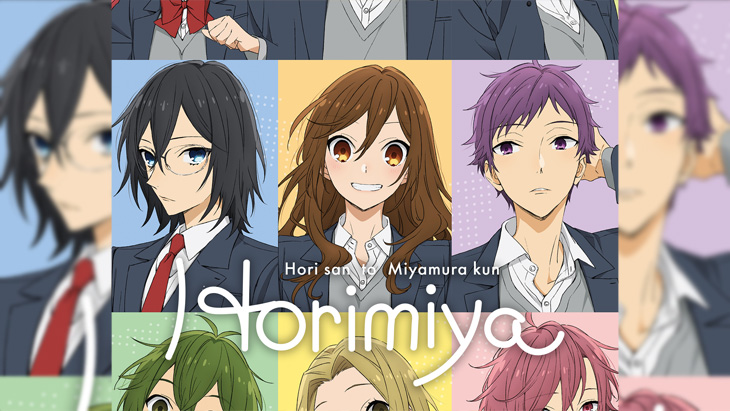
Horimiya (Hori-san to Miyamura-kun) is the quintessential romantic comedy of Winter 2021; so those who fall back to the genre can rest easy they haven’t been ignored. But how well does a romantic comedy stand out in recent years which have been inundated with isekai and shonen action?
Luckily that’s the great thing about anime is that there’s so much of it. While it’s a reasonable concern that such a mild series could get buried under all the excitement; there will always be a place for every genre to make it’s mark in a season.
Horimiya
Studios: CloverWorks
Publishers: Aniplex, Square Enix
Director: Masashi Ishihama
Translation: Funimation
Premiere: January 10, 2021
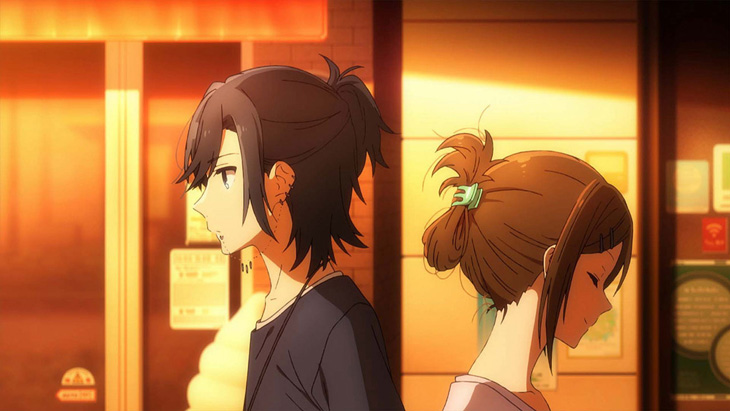
Horimiya follows the blossoming relationship between popular girl Kyouko Hori and loner Izumi Miyamura. The two spark a friendship after Miyamura finds Hori’s little brother hurt outside and brings him home.
However Miyamura’s style is a lot more audacious than his behavior at school would indicate; while normally he’s gloomy and reserved it’s partly to hide his piercings and tattoos which give him a cooler appearance that catches Hori’s attention.
Full disclosure, I did cheat a little on this review and looked ahead beyond episode three; but I did this for a good reason. By the end of episode three (heck, by the end of episode one) it’s obvious Hori and Miyamura have feelings for each other.
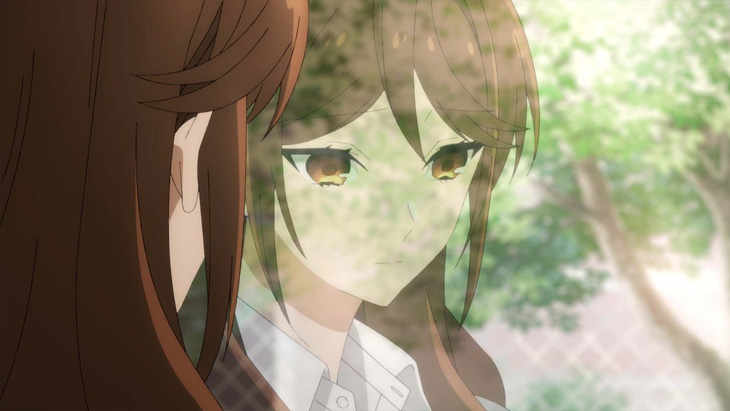
So I looked ahead a little bit just to make sure there was actual content worth nine more episodes. Luckily that seems to be the case as the pair’s relationship has an impact on those around them; and the two tackle these interpersonal dramas together.
As the two grow closer together, they navigate what it means to really be with other people. Hori has to tackle her “popular” status and how it’s put a burden on her to help others, even when she doesn’t want to. In contrast, Miyamura has to learn to trust people and build confidence in himself; after being considered “gloomy” from elementary school on, he doesn’t open up easily and constantly questions his place in both Hori’s eyes and her friend circle.
Horimiya puts almost too much emphasis for the first few episodes on the relationship between the two. But that might be because it gets resolved so quickly. As I mentioned earlier, the two apparently have feelings for each other.
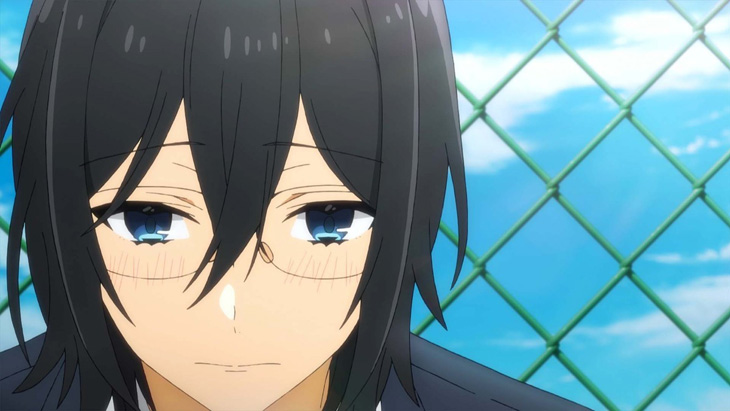
This means (unfortunately) that in order to draw out the drama, the two are staunchly ignorant of their own feelings and entirely dishonest with each other. In fact the biggest drama in the beginning is Hori realizing how dense she is and Miyamura realizing that he’s someone that can be loved and deserves friendship.
The problem is that this particular conflict has been on the precipice of being resolved for three episodes. This might not seem like a problem, as normally it takes a whole season for this kind of plot. But even three episodes feels agonizingly slow in Horimiya because of just how close they are to realizing it.
The pair are joined by Yuki Yoshikawa, Hori’s friend whose aesthetic straddles some strange line between tomboy and gyaru; and by Toru Ishikawa, a young man who develops a sense of camaraderie with Miyamura despite his jealousy after he was turned down when confessing to Hori.
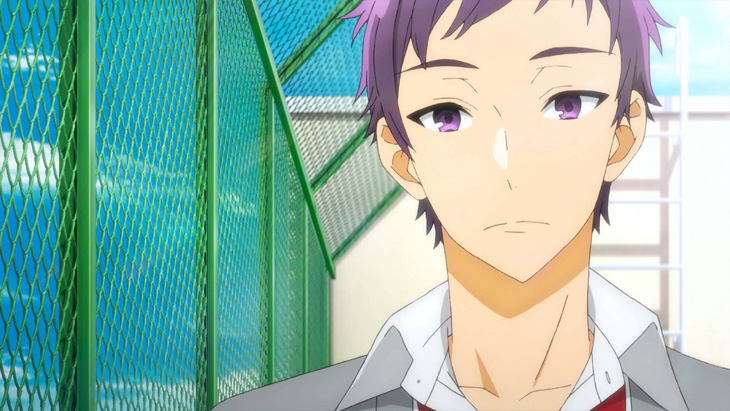
Despite the potential for drama and the depressing personality of Miyamura, Horimiya is a series that relies just as heavily on the comedic as it does the romantic. Rather than using puns or misunderstandings as a source of humor, the series is more about physical comedy with Miyamura and Toru getting physically violent with some of their problems.
The character design is kind of all over the place. The protagonists are ironically given normal hair colors with Miyamura having straight black hair, and Hori having a chestnut brown color. Side characters are another story and they’re given wacky anime colors.
It’s actually kind of jarring. You can go from a romantic household scene with the two protagonists and everything seems normal and then suddenly change scenes to the school and you’re looking at Toru’s purple locks.
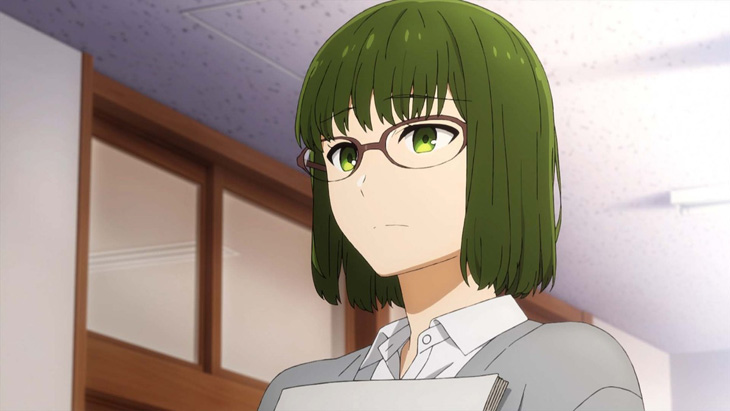
One character even has some weird color palette where his hair is a deep green and his tan skin kind of reflects it. His color scheme is similar to Tsuruya’s from The Melancholy of Haruhi Suzumiya but his skin has an almost greenish pallor within his tan. The anime hair colors just clash too much for the kind of story Horimiya is telling.
However where most of the side characters are lacking, the protagonists shine. Hori is cute and her cheerful attitude shines through. Similarly her friend Yuki manages to squeak by with having a simple blonde hair color and rivals Hori in looks.
But outside of the character design, the animation and visual humor in the series is beautiful and effective. CloverWorks has so far proven themselves to be responsible despite the siren song of easy 3D animation. Though that’s a low bar in a romantic comedy which tends to lack the kind of action scenes that cause studios to dabble with 3D.
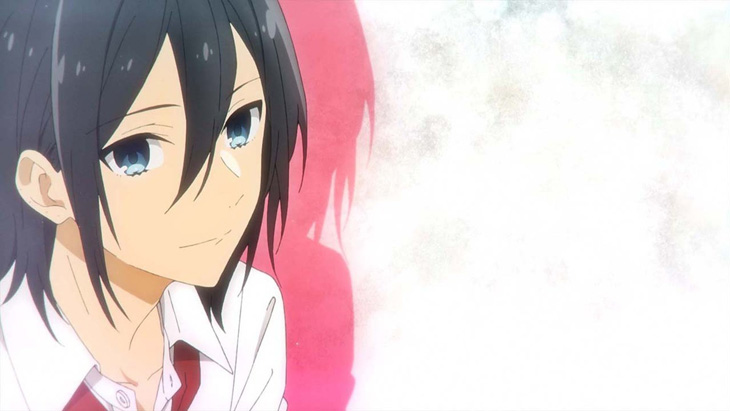
In contrast to the character design, the voice cast does a more than adequate job and many of the characters readily express a range of emotion. In particular, Haruka Tomatsu (Kannagi, Kyouran Kazoku Nikki) does a fantastic job as Hori and in one scene in particular manages to really portray a kind of quiet and subdued frustration that’s full of emotion. Despite being a minor scene, her acting stands out.
Kouki Ichiyama (Amagi Brilliant Park, IS: Infinite Stratos) similarly performs well as Miyamura. Despite the different appearances of Miyamura, he’s able to maintain a constant tone and make it apparent that whether he’s comfortable and outgoing with Hori, or shy and gloomy at school, it’s still the same person. Many actors tend to fall into the trap of taking drastically different tones when characters change their appearance so readily.
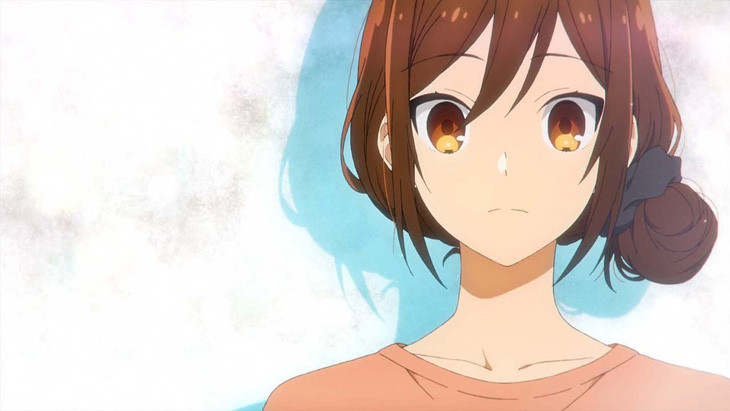
The opening theme Iro Kousui (Color Perfume) is performed by singer You Kamiyama and sets an upbeat and cheerful tone which fits the series perfectly with its constant humor. The song also uses a distinct melodic chord that ends on a high note which stands out.
The ending theme is Yakusoku (Promise) by Friends is a slow-paced ballad type song which is perfect for a romantic comedy series. Unlike Iro Kousui, nothing really sets Yakusoku apart from any other love ballad and in my opinion it’s not a particularly memorable song.
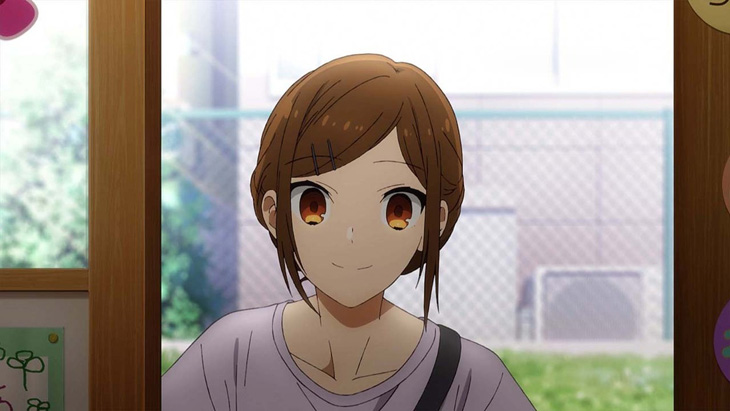
Ultimately, Horimiya is a romantic comedy with a lot of potential, but suffers from its pacing. While it’s true there’s more to the story than just Hori and Miyamura getting together, the fact that it’s so obvious and slow makes a slog out of the first three episodes. There are times I laughed, times I got excited, but each episode I’d end up frustrated. Whether that’s a telltale sign of a good drama, or poor pacing will likely show itself in later episodes but for now it’s three episodes with little payoff.
Fans of romantic comedy will probably enjoy the series, and anyone that can forgive the pacing will probably find something to enjoy in Horimiya. However those who like more drama in their romantic comedies will likely be disappointed with the obvious feelings they have for each other and frustrated with the characters’ stubbornness.